Level 3 Diploma for Residential Childcare (RQF)
- Original price was: £1,499.00.£899.00Current price is: £899.00.
- 1 year
- Awarding Body 'TQUK'
- 468Guided Learning Hours
- Course Material
- 620 Hours Total Qualification Time
- Self-study Online
- 32 Credits
- Ofqual Regulated Qualification
- 32UCAS Points


Course Overview
Building Tomorrow’s Childcare Leaders
Make a tangible difference in the lives of children in your care with this Level 3 Diploma for Residential Childcare. Be equipped with the skills, knowledge, and confidence needed to succeed as an effective childcare professional. If you wish to work in residential care homes, residential special schools, therapeutic communities, secure children’s homes, shared care, or short break settings, this Ofqual-regulated qualification will enable you to innovate and respond effectively and meet both opportunities and challenges within the sector. Additionally, this qualification can be used as a mandatory qualification for the Children, Young People and Families Practitioner apprenticeship (equivalent to HNC). This course is approved by Ofsted and the Care Quality Commission (CQC).
Residential Childcare Course Benefits;
- Gain a nationally-recognised qualification.
- A strong credential for advancing in the social care and childcare sectors.
- Opportunities to foster personal growth and professional competence.
- Study on your own schedule—no exams, no strict deadlines.
- Earn 32 UCAS points that can be used to enrol at a university of your choice.
Key Features of this Level 3 Diploma (RQF);
- Receive complete training in residential care with children in a supporting role.
- Create and maintain a safe environment conducive to children and young people.
- Acquire specific competencies when working as a childcare professional.
- Learn to prioritise personal development and reflective practices.
(RQF qualifications carry meaning and recognition and are regulated by Ofqual, the Office of Qualifications and Examinations Regulation that regulates qualifications, examinations, and assessments in England. Ofqual is England’s main government-appointed regulatory body, regulating school and college qualifications, and vocational and technical qualifications.)
Benefits of Learning with South London College
![]()
Affordable Prices
Enjoy the most affordable prices on the market for our courses.
![]()
Expertly Crafted E-Learning Content
Access expertly designed and developed e-learning content.
![]()
Dedicated Personal Tutor
A dedicated personal tutor and key account manager assigned to you.
![]()
Flexible Learning
Flexibility is our priority – start anytime, anywhere to fit your schedule.
![]()
12 Months Access
Receive 12 months of online access to our learning portal and tutor support.
![]()
Boost Your Skills and Employability
Develop your skills and increase employability in the UK and beyond.
![]()
Friendly Customer Support
Our friendly customer support team is available to answer your questions.
![]()
Instructor-led Virtual Discussions
Participate in Instructor-led virtual group discussions (Blended learning experience).
![]()
Money Back Guarantee
14 days money back guarantee
(T & C apply).
![]()
Instant Feedback
Receive immediate feedback and results for your assessments.
![]()
Interest-free instalment plan
Interest-free instalment payment plan.
![]()
Access to Free CPD Courses
Access to free CPD courses for Continuous Professional Development.
What Will I Learn?
Key Features
Support
From day one, we go above and beyond to help you succeed in your studies. The most valuable resource available to all our students is their tutor. When you enrol in this course, you are assigned a personal tutor with in-depth knowledge and experience in your chosen subject.
Your assessment will be marked by your personal tutor, who will provide detailed feedback during your formative submissions. In addition to this, your tutor will offer pointers and advice on where you can improve. This guidance helps you get the most from your courses and continually enhance your skills.
Our dedicated student support team is also readily available to provide advice and guidance, helping you navigate your course materials and resolve any queries. With just one click, you can trust that assistance is always there when you need it.
| Course Highlights |
Excited but unsure? We’re just a call away! |
| Learning Outcomes |
|
| Who is This Certification For? | This Level 3 Diploma for Residential Childcare is suitable for those working in managerial roles in residential childcare settings and looking to progress their career. It is also ideal for managers who have not yet achieved a vocational qualification at Level 5.
|
| Certification | Upon successful completion, individuals will be awarded the Ofqual-regulated qualification of the Level 3 Diploma for Residential Childcare. |
| Career Progression | Prepare for a Rewarding Career in Children
After completing the Level 3 Diploma for Residential Childcare, you will be well-positioned to take on various roles in residential care homes, fostering agencies, and specialised children’s services. The demand for skilled professionals in residential childcare is growing, and those with this diploma can pursue careers that involve safeguarding children, promoting their wellbeing, and helping them transition to independent living. With further training, you can progress to positions including Registered Manager or Deputy Manager and take on greater responsibilities. This qualification provides a pathway to higher studies in specialised areas such as social work or therapeutic childcare. Here are some career prospects you can pursue, once you’ve achieved this Level 3 Diploma.
|
| Entry Requirements |
Not sure if this course is for you? Speak to an advisor today! |
| Average Completion Timeframe |
|
| Method of Assessment | This course is evaluated through a combination of written assignments which will be tutor-marked and workplace assessments. There are 17 units featured in this course. Importantly, this course doesn’t have exams. Here’s an overview of how you will be assessed throughout the course.
For further details or any specific questions about the assessment process, please click the ‘Enquire Now’ button below to get in touch with us. |
| Academic Progression | After completing this Level 3 Diploma, you can advance to a Level 4 or 5 qualification. You can also progress to a bachelor’s degree in childhood studies, social care, or leadership and management.
Next Steps for a Possible Academic Progression Pathway:
Additional qualifications you can progress to;
|
| Regulated by | OFQUAL
Ofqual-regulated qualifications are overseen by the Office of Qualifications and Examinations Regulation (Ofqual) in England. Ofqual is England’s main government-appointed regulatory body regulating school, college, and vocational qualifications in the UK. Ofqual ensures these qualifications meet high standards of quality and rigour, providing assurance they are recognised and respected by employers, educational institutions, and professional bodies. This oversight guarantees the qualifications maintain consistency, transparency, and credibility, meaning potential employers and organisations will have confidence in the individual’s skills and abilities, making them competitive candidates. They support professional development and compliance with industry standards, particularly in regulated fields such as healthcare, education, and public services. Ofqual-regulated qualifications are accepted abroad or can be easily converted to the country’s equivalent. RQF The Regulated Qualifications Framework (RQF) is a system used in England, Northern Ireland, and Wales to categorise and regulate qualifications based on their level of difficulty and size. RQF is jointly regulated by England’s regulator Ofqual, Wales DCELLS, and Northern Ireland’s CCEA. The RQF ensures qualifications are standardised, making it easier for learners, employers, and educational institutions to understand the value and level of each qualification. The framework consists of nine levels, from Entry Level to Level 8, with each level indicating the complexity and depth of learning. For a qualification to be recognised as part of the Regulated Qualifications Framework (RQF), it must be created or approved by an awarding body that is acknowledged by one of the government-appointed regulatory bodies. |
South London College
Take Charge of Your Future with South London College
As a trusted online provider, South London College believes in the transformative power of education. A highly regarded learning platform in the United Kingdom, we are dedicated to providing individuals with life-changing opportunities. Our primary goal is to ensure our learners meet their educational needs and achieve personal growth and professional advancement. With our commitment to delivering top-notch learning materials, exceptional experiences, and comprehensive services, we strive to motivate and empower our learners to acquire new skills, enhance their existing ones, and remain competitive in their chosen fields. This Level 3 Diploma for Residential Childcare is designed for those wanting to work in residential childcare with children in a care role, with the potential to become residential childcare workers.
Course Curriculum
Unit 01
Support the Development of Children and Young People to Achieve Their Learning Potential
- Understand the expected pattern of development for children and young people.
- Understand the factors that influence children and young people’s development and the effect on own practice.
- Understand the cycle of monitoring, assessment and intervention for children and young people’s development.
- Understand how to support children and young people to sustain engagement in learning and education.
Unit 02
Safeguarding and Protection of Children and Young People Residential Childcare
- Understand the importance of safeguarding and child protection in residential childcare.
- Understand abuse and the effects on children and young people in residential childcare.
- Understand principles for e- safety.
- Understand child sexual exploitation.
- Understand Support strategies to protect and empower children and young people to promote well- being.
Unit 03
Supporting Children and Young People Who Have Experienced Harm and Abuse
- Understand the role and responsibilities of the practitioner and others when supporting children and young people who have experienced harm and abuse.
- Understand how to support children and young people who disclose harm and abuse.
- Understand how to support children and young people who have experienced harm and abuse.
- Understand restrictions on the involvement of key people with children and young people who have experienced harm and abuse.
- Understand how to support practitioner’s needs in relation to their involvement with children and young persons who have experienced harm and abuse.
Unit 04
Support Effective Communication and Information Handling in Residential Childcare
- Understand effective communication in the work setting.
- Be able to meet communication and language needs, wishes and preferences of individual children and young people.
- Be able to reduce barriers of communication in residential childcare settings for children and young people.
- Be able to use communication skills to minimise and resolve conflict situations.
- Understand the principles and practices relating to confidentiality in the work setting.
- Be able to implement organisational processes and procedures for information.
Unit 05
Support Positive Outcomes for Children and Young People in Residential Childcare
- Understand how multiple factors can contribute to uncertainty in the lives of children and young people.
- Understand how to support children and young people in residential care to achieve positive outcomes.
- Understand how disability can impact on positive outcomes and life chances for children and young people.
Unit 06
Support Positive Relationships and Attachments for Children and Young People in Residential Childcare
- Understand the importance of positive attachments for the well-being of children and young people.
- Understand how to support positive attachments for children and young people in residential childcare.
- Understand how to support positive relationships for children and young people in residential childcare.
- Be able to develop positive relationships with children and young people.
- Be able to address concerns about attachments and relationships of children and young people.
- Be able to reflect on own practice in supporting positive attachments and relationships for children and young people.
Unit 07
Support the well-being and Resilience of Children and Young People in Residential Childcare
- Understand the well-being and resilience of children and young people.
- Be able to support the development of children and young people’s social and emotional identity and self- esteem.
- Be able to support children and young people to develop a positive outlook on their lives.
- Be able to recognise and respond to signs of distress in children and young people.
- Be able to monitor the well- being and resilience in children and young people.
Unit 08
Support Group Living in Residential Childcare
- Understand theories that underpin work with children and young people in group living.
- Be able to support children and young people to live together as a group.
- Be able to plan with children and young people activities for sharing a living space.
- Be able to support children and young people to develop relationships through daily living activities.
- Be able to support continuous improvement in group living arrangements.
Unit 09
Support and Promote Shared Risk Management with Children and Young People in Residential Childcare
- Understand requirements for health, safety and risk management in residential childcare settings for children and young people.
- Be able to support children and young people to manage risk.
- Be able to manage risks to health, safety and security.
- Understand how to respond to accidents, incidents, emergencies and illness in the work setting.
Unit 10
Support Children and Young People in Residential Childcare to Manage Their Health
- Understand health service provision in relation to children and young people in residential childcare.
- Be able to address concerns about the health of children and young people.
- Be able to support children and young people to manage their own health needs.
- Be able to support children and young people to make healthy lifestyle choices.
Unit 11
Assessment and Planning with Children and Young People in Residential Childcare
- Understand the purpose and principles of assessment and planning with children and young people.
- Understand how to place children and young people at the centre of assessment and planning.
- Be able to participate in assessment and planning for children and young people.
- Be able to Implement agreed plans and work with the child and young person and others.
- Be able Work with children and young people to review and update agreed plans.
- Be able to Contribute to assessment led by other professionals.
Unit 12
Support and Promote the Rights, Diversity and Equality of Children and Young People in Residential Childcare
- Understand the rights of children and young people.
- Understand the implications of equalities legislation for children and young people in residential childcare.
- Be able to address discriminatory practice.
- Be able to work in a culturally sensitive way and challenge discriminatory, harmful and illegal practices.
- Be able to support the right of children and young people to raise concerns and make complaints.
- Be able to promote equality and the rights of the child and young people in residential childcare.
Unit 13
Contribute and Support Working in Teams to Benefit Children and Young People in Residential Childcare
- Understand how to work as part of a team.
- Understand the local network for children and young people’s services.
- Understand the role of networks and multi-agency work in supporting positive outcomes for children and young people in residential childcare.
- Be able to build working relationships with others involved in the care of children and young people.
- Be able to participate in a multi-agency team around a child and young person.
- Be able to communicate with others to facilitate multi- agency working.
Unit 14
Engage in Professional Development in Residential Childcare Settings
- Understand what is required for competence in own job role in a residential childcare setting.
- Be able to reflect on own practice and the work practice.
- Be able to evaluate own performance.
- Be able to Engage with professional supervision to plan and review own development.
- Be able to use reflective practice to contribute to professional development.
Unit 15
The Care System and Its Impact on Children and Young People
- Understand the process by which a child and young person comes into care.
- Understand the entitlements of children and young people in care.
- Understand the context of residential services for children and young people in care.
- Understand the impact of residential childcare services on children and young people.
- Be able to support a positive experience of care services for children and young people.
- Understand planning for children and young people in residential childcare.
Unit 16
Residential Childcare for Children and Young People with Complex Disabilities or Conditions
- Understand the nature of complex disabilities and conditions and their impact on children and young people.
- Understand the impact on families of having a child with a complex disability and condition.
- Understand residential services for children and young people with complex disabilities and conditions.
- Understand how to support the participation of children and young people with complex disabilities and conditions.
- Understand how having a complex disability and condition can affect the transition into adulthood and how you can support this.
Unit 17
Working with the Families of Children and Young People in Residential Childcare
- Understand the impact on families when a child and young person is in residential childcare.
- Understand the principles and good practice when working with families.
- Be able to support families to maintain their relationship with their child.
- Be able to work in partnership with families
Still have more questions about this course? Give our team a call on
FAQ's


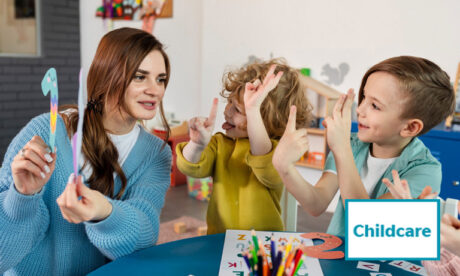
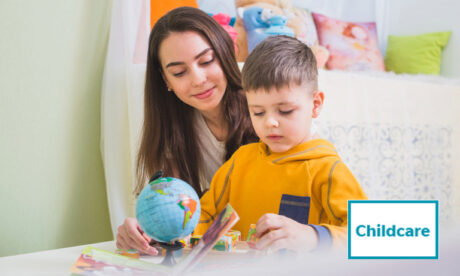
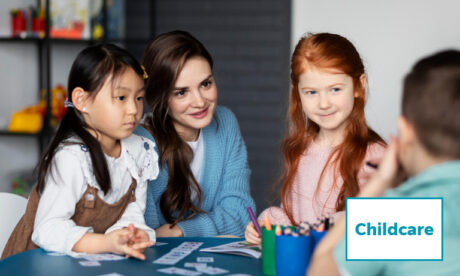
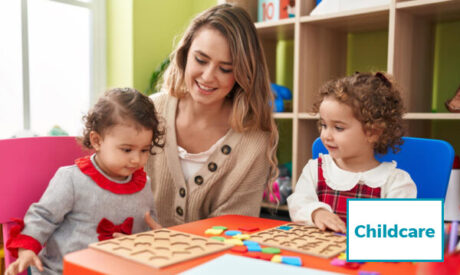
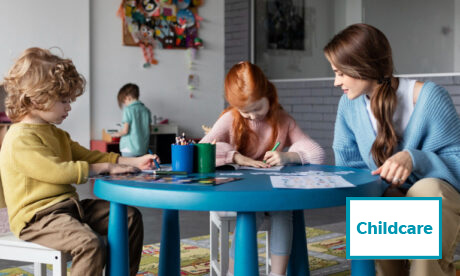
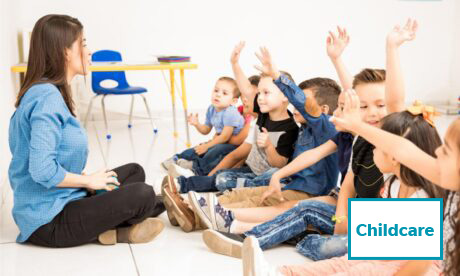
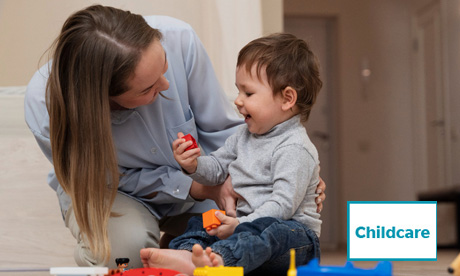
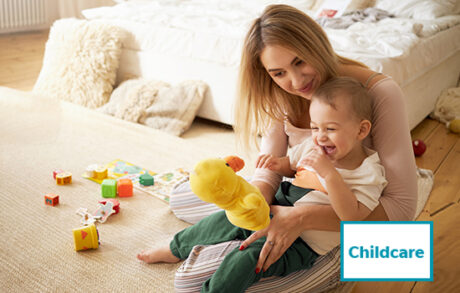
Gave me Confidence
The practical assessments really helped me improve my skills and gave me confidence in my day-to-day work.
Recommended
This level 3 diploma has helped me grow professionally.
Life Changing
This course has been life changing. It gave me the confidence and skills I needed to support children in residential care.